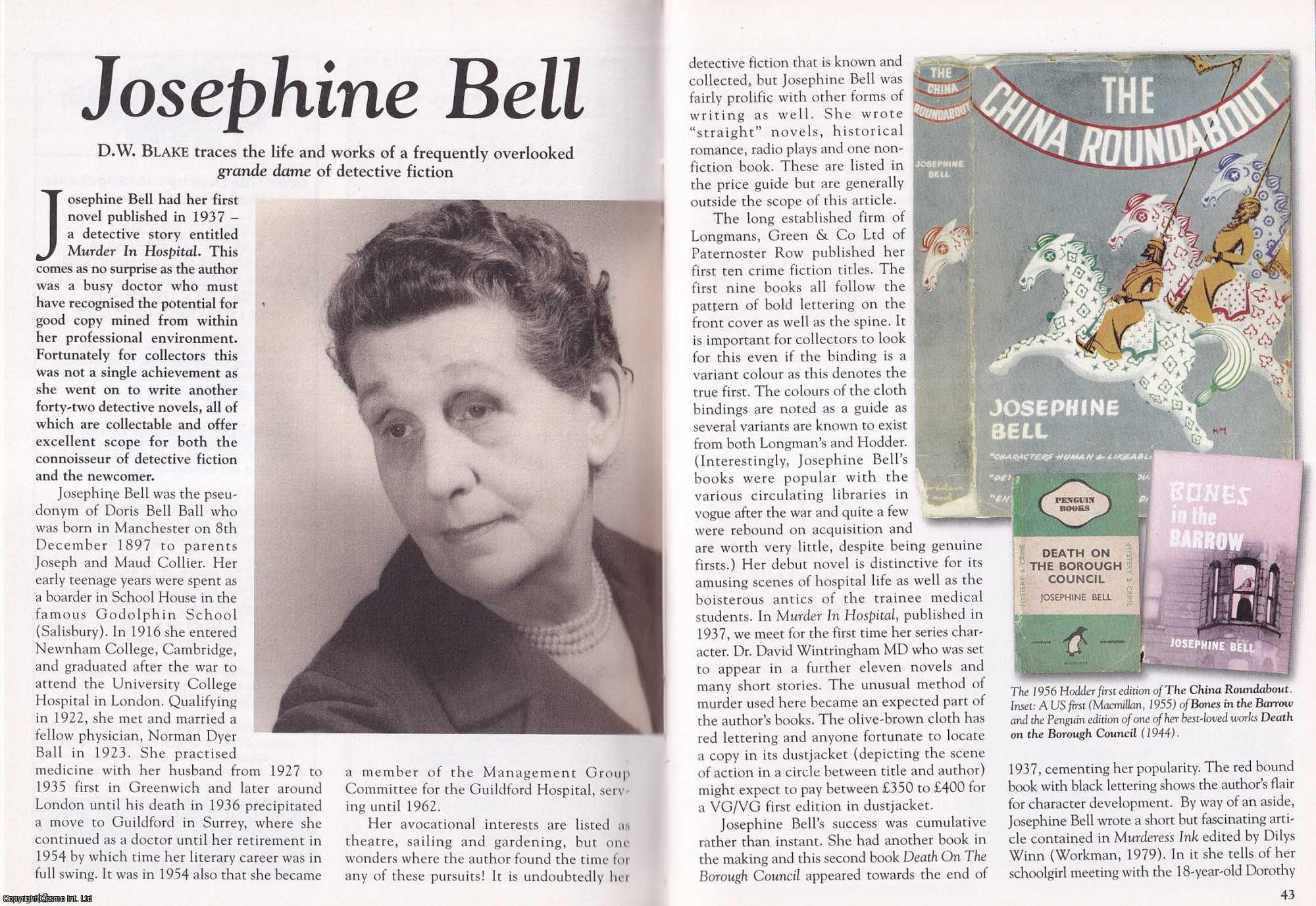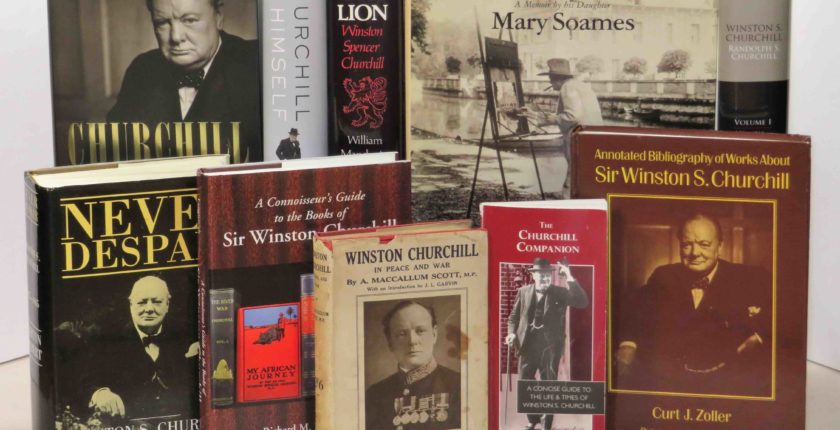Introduction to Josephine Bell
Josephine Bell, born as Doris Bell on May 6, 1897, in London, England, emerged as a significant figure in British literature, particularly known for her contributions to crime and mystery fiction. Throughout her prolific career, she authored an impressive array of novels that captivated readers with intricate plots and compelling characters. Raised in the heart of London, Bell displayed a penchant for storytelling from an early age, which would later define her professional life as an author.
Josephine Bell was not only a novelist but also a skilled journalist and medical doctor. After completing her education at the London School of Medicine for Women, she began her medical practice, which influenced her writing style and thematic choices. Many of her works reflect her medical knowledge, enmeshing elements of crime with the intricacies of human psychology. This unique perspective allowed her to explore the darker aspects of humanity, adding depth to her narratives. Her dual career not only showcases her versatility but also provides insight into the inspirations behind her literary creations.
<pover a=”” ability=”” active=”” an=”” and=”” annals=”” authors=”” bell=”” broader=”” career,=”” characters=”” circles,=”” complex=”” contributing=”” course=”” crime=”” degree,”=”” discourse=”” earned=”” engaging=”” fellow=”” fiction.
Understanding Bell’s background and the influences on her writing is essential in appreciating her legacy in literature. Through this exploration, we will delve deeper into her life, notable works, and the impact of her contributions to the field.
Early Life and Education

Josephine Bell, born on 13th January 1897 in a small English town, grew up in a family that valued education and culture. Her father, a schoolmaster, and her mother, a keen reader, established an environment conducive to intellectual growth and artistic expression. This nurturing atmosphere played a critical role in shaping her literary aspirations from a young age. Surrounded by books and encouraged to explore her creative instincts, Josephine developed a passion for storytelling that would influence her future works.
Her early education took place in local schools before she advanced to the prestigious North London Collegiate School. This institution, known for its strong emphasis on literature and the arts, provided Josephine with a solid foundation in critical thinking and analysis. It was during these formative years that she was exposed to the works of prominent authors, further fueling her desire to pursue a career in writing. The diverse curriculum and the support of inspiring teachers at the college were significant in encouraging her unique voice and honing her writing skills.
One of the pivotal influences in Josephine’s life was her involvement with the local youth literary club. This group provided a platform for young writers to share their work and receive constructive feedback. Working alongside peers who shared her enthusiasm for literature was instrumental in developing her confidence and refining her craft. Additionally, the mentorship of her English literature teacher, who recognized her potential, left a lasting impact. This educator not only guided her through the nuances of literary analysis but also instilled in her the importance of persistence and dedication in writing.
Through these experiences, Josephine Bell laid the groundwork for her future career as a novelist and playwright, demonstrating that her early life was characterized by a rich tapestry of educational influences and nurturing relationships that would ultimately shape her literary journey.
Literary Career Beginnings

Josephine Bell, born as Doris Bell in 1897, embarked on her writing career against the backdrop of a changing literary landscape in the early 20th century. She began her journey in the realm of short stories, which served as the perfect medium for her to hone her craft. Bell’s initial publications appeared in assorted magazines and periodicals, where she quickly garnered attention for her keen observations of human nature and the intricacies of everyday life. Her early work often reflected the challenges and experiences of women, a theme that would permeate much of her later writing.
The transition from short stories to novels was a pivotal moment in her career. In 1933, she published her first novel, “The House in the Square,” which laid the groundwork for her future works. This novel marked a significant milestone, showcasing her ability to weave intricate narratives and develop multi-dimensional characters. Despite facing various obstacles, such as balancing her writing with family responsibilities and societal expectations of women at the time, Josephine Bell persevered and continued to mold her literary voice.
Throughout the 1930s, she produced a substantial body of work, including several novels and short story collections. Her writing was characterized by a blend of social commentary and engaging storytelling, which resonated with readers. The tumultuous events of the time, including the aftermath of the First World War and the onset of the Second World War, influenced her narratives, often drawing upon themes of resilience and hope. Josephine Bell’s early career not only set the stage for her future successes but also established her as a significant figure in the modern literary canon, paving the way for subsequent generations of writers.
Major Works and Acclaim

Josephine Bell, a remarkable figure in the realm of crime fiction and mystery, produced a plethora of works that garnered significant acclaim throughout her career. Her writing is characterized by intricate plots, well-developed characters, and a keen understanding of human psychology, which have resonated with readers and critics alike.
One of her most celebrated novels, The Murder of Mrs. Davenport, published in 1935, showcases Bell’s skill in crafting a suspenseful narrative. The story revolves around the mysterious death of an affluent widow, unraveling layers of deception within her family. Critics lauded the novel for its captivating plot twists and insight into social dynamics of the time, solidifying Bell’s reputation as a skilled storyteller.
Another noteworthy work, One of My Best Friends, released in 1950, reflects Bell’s ability to blend humor with crime. This novel tells the tale of a group of friends drawn into a murder investigation, revealing the dark secrets that linger beneath their seemingly perfect lives. The light-hearted approach to a serious topic earned positive reviews, demonstrating Bell’s versatility as a writer.
Additionally, Case for Three Detectives, published in 1936, allows readers to experience a delightful interplay of mystery and humor as three amateur sleuths embark on a complex investigation. This work stands out for its innovative structure, where multiple perspectives enhance the narrative, and was well-received by both the public and literary critics.
Bell’s literary contributions extend beyond her novels; she also wrote numerous short stories and essays, further affirming her position in the literary world. Her ability to navigate themes of morality and justice within the context of crime fiction continues to influence modern authors. Josephine Bell’s enduring legacy is encapsulated in her rich body of work, which remains a testament to her prowess as a writer.
Thematic Elements in Bell’s Writing

Josephine Bell, a prominent figure in 20th-century literature, wove intricate themes and motifs throughout her extensive body of work. Her stories often delve into the complexities of human psychology, revealing how individuals navigate their emotions and relationships in challenging circumstances. This exploration of the human mind not only captivates readers but also allows for a deeper understanding of the motivations behind her characters’ actions. Bell’s ability to portray psychological conflicts adds layers to her storytelling, making it resonate on a personal level for many readers.
In addition to psychological exploration, moral dilemmas frequently emerge as a significant theme in Josephine Bell’s narratives. Her characters often find themselves at crossroads, facing ethical choices that test their values and beliefs. These dilemmas serve not only as plot devices but also as reflections of societal norms and expectations. By placing her characters in morally ambiguous situations, Bell encourages readers to grapple with difficult questions about justice, responsibility, and human fallibility. This engagement with moral complexity positions her works as profound commentaries on the nature of right and wrong in an ever-evolving society.
Furthermore, social commentary is a recurring element in Bell’s writing, as she adeptly critiques the societal structures that shape her characters’ lives. Through her narratives, Bell addresses themes such as class disparity, gender roles, and the impact of war and conflict on individuals and communities. This social awareness not only enriches her stories but also makes them relevant to contemporary discussions about inequality and human rights. By intertwining these thematic elements, Josephine Bell successfully crafts a literary landscape where psychological nuance, moral complexity, and social critique coexist, ultimately enriching her character development and narrative depth.
Josephine Bell’s Influence on Crime Fiction

Josephine Bell, an eminent figure in the realm of crime fiction, has left an indelible mark on the genre through her innovative writing style, memorable character construction, and intricate plot development. Her literary contributions not only captivated her contemporary audience but also laid the groundwork for future generations of mystery writers. Bell’s novels often blend psychological depth with engaging storytelling, allowing readers to immerse themselves in the complexities of her characters while unraveling thrilling plots.
A key aspect of Bell’s influence lies in her nuanced understanding of human behavior, which she skillfully translated into her characters. Unlike many of her predecessors, Josephine Bell populated her stories with multifaceted individuals whose motivations and moral dilemmas resonate on a personal level. This authentic character portrayal connected her readers to the narrative, inviting them to engage with the unfolding mysteries on a deeper, more emotional plane. Her approach has inspired a plethora of subsequent authors, encouraging them to prioritize character development alongside traditional elements of plot construction in crime fiction.
Moreover, Bell’s plot development was pioneering, as she often employed unconventional structures and unpredictable twists that kept readers guessing. She masterfully wove together various narrative threads, allowing multiple perspectives to unfold before converging into a resolution that was both satisfying and thought-provoking. Her work encouraged modern authors to experiment with narrative techniques and explore various intricacies within the mystery genre, broadening the horizons of crime fiction.
In addition to her strong narrative style and character work, Bell’s influence is also evident in her role as a trailblazer for female authors in a male-dominated landscape. By establishing herself as a prominent voice in crime fiction, Josephine Bell paved the way for future female writers to excel in the field, thereby enriching the genre with diverse perspectives and themes. Her contributions remain relevant today, shaping the evolution of mystery novels and encouraging a new generation of authors to explore uncharted territories in crime fiction.
Personal Life of Josephine Bell

Josephine Bell, born in 1897, was not only a formidable writer but also a person with a rich and vibrant personal life. Her early years were foundational; born as the daughter of a doctor in the North of England, she was exposed to the values of education and perseverance from an early age. Josephine Bell’s family encouraged intellectual pursuits, fostering her love for literature. This early support was instrumental as she began to write at a young age, nurtured by the cultural and intellectual environment surrounding her.
As Josephine matured, her relationships played a significant role in shaping her literary voice. She married Dr. Ernest Bell in 1925, and their partnership was described as one filled with mutual respect and encouragement. Their shared interests often intertwined, with Ernest’s medical background providing Josephine with insight into human behavior and psychology, often reflected in her characters. The couple had three children, and the dynamics of family life undoubtedly enriched her storytelling, as she drew inspiration from her experiences as a mother and wife.
Beyond her literary accomplishments, Josephine Bell also had various hobbies that illuminated her personality. She was an avid gardener, finding solace in nature, which is beautifully depicted in her writings. Painting was another passion, allowing her to explore creativity in a different form. Josephine was also involved in social causes, advocating for women’s rights and education, which often echoed in her themes of resilience and empowerment. These experiences outside of literature not only defined her personal life but also contributed to her growth as an influential writer. The interplay of her family relationships, hobbies, and social involvement crafted a multifaceted personality, enriching her works and allowing readers a glimpse into the life behind the literary artist known as Josephine Bell.
Legacy and Recognition

Josephine Bell, a notable figure in the realm of literature, left an indelible mark through her extensive body of work, which includes novels, short stories, and essays. Born in 1883, Bell’s writing career spanned several decades, during which she garnered critical acclaim and developed a devoted readership. Her unique ability to blend suspense with rich character development not only distinguished her in her time but has also ensured her lasting presence in literary discussions today.
Throughout her lifetime, Josephine Bell received numerous accolades that reflect the esteem in which she was held by her peers and critics alike. Notably, she was a recipient of the prestigious Edgar Award, recognizing her significant contributions to the mystery genre. Furthermore, her alignment with prominent literary circles, including memberships in respected writer’s organizations, provided her with additional platforms to share her vision and literary prowess. These recognitions were a testament to her skill and the relevance of her works in light of the evolving landscape of literature.
Even after her passing in 1985, Bell’s influence has not waned. Her novels continue to be studied in academic settings, providing insight into the social and cultural milieu of her time, as well as the literary conventions she masterfully navigated. Scholars and literary enthusiasts alike often revisit her prose, noting its intricacies and thematic depth. This ongoing appreciation underscores the timelessness of her narratives, as they resonate with contemporary audiences just as they did during her era. Josephine Bell’s legacy, marked by accolades and continued scholarly interest, highlights her role as a significant literary figure whose works warrant exploration and admiration across generations.
Conclusion: The Lasting Impact of Josephine Bell
Josephine Bell, a prominent figure in early 20th-century literature, has left an indelible mark on the literary landscape through her unique storytelling and vibrant characters. Her novels, which often explore themes of human relationships and psychological depth, capture the complexities of everyday life, allowing readers to resonate with her narratives on various levels. The breadth of her work, encompassing not only novels but also short stories and essays, showcases her versatility as an author, demonstrating her ability to engage a diverse audience.
Throughout her career, Josephine Bell navigated themes that remain relevant today, touching on societal changes, moral dilemmas, and the struggles of ordinary individuals. This relatability continues to draw new readers to her works, illustrating the timeless nature of her writing. Furthermore, her ability to weave rich, character-driven plots invites a level of engagement that fosters deep emotional connections, thus ensuring that her stories linger in the minds of her readers long after they turn the final page.
<pthe a=”” also=”” and=”” appreciate=”” be=”” bell=”” bell’s=”” both=”” breadth=”” but=”” by=”” can=”” cannot=”” collective=”” continues=”” contributions=”” depth.=”” dive=”” encouraging=”” enjoyable=”” experiences,=”” exploring=”” for=”” generations=”” has=”” her=”” human=”” impact=”” impactful.






